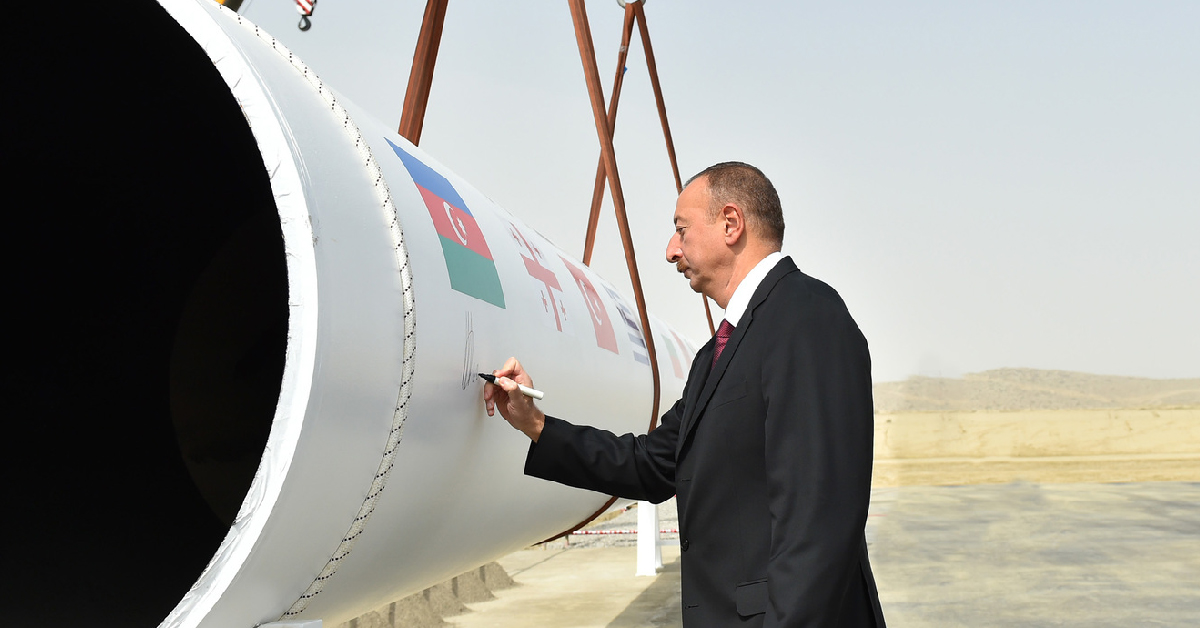2025
2025
2024-11-21

Turkey and Azerbaijan share close ties not only in the cultural sphere but also in the economic domain. In this regard, the energy sector holds significant importance in their relations, as both countries are major suppliers of oil and natural gas to Europe. However, from time to time, conflicts of interest arise between these countries concerning the pricing and supply of oil and gas.
The Baku-Tbilisi-Ceyhan pipeline and the Trans-Anatolian Natural Gas Pipeline (TANAP) play a key role in the energy relations between Turkey and Azerbaijan. Through TANAP, natural gas from Azerbaijan's Shah Deniz field is transported to Europe via Turkey. This pipeline forms the central part of the Southern Gas Corridor, which aims to reduce Europe's dependence on Russian gas. As for the Baku-Tbilisi-Ceyhan pipeline, it is a major oil pipeline connecting the Caspian Sea region to the Mediterranean Sea, passing through Georgian territory.
It is worth noting that Azerbaijani gas has always been cheaper for Turkey compared to gas imported from Russia and Iran. Turkey seeks to maintain competitive prices to attract more buyers in Europe and reduce domestic costs.
The pricing discord between Turkey and Azerbaijan became particularly evident after the 44-day Nagorno-Karabakh war and the Ukrainian crisis. Interest in Azerbaijani gas in Europe began to grow, especially after the Trans-Adriatic Pipeline (TAP) started to operate in end of 2020. As a result, direct gas supplies to Europe started, increasing Azerbaijan's political influence.
If before the 44-day war Azerbaijan leveraged its energy resources to advance its position on the Nagorno-Karabakh issue, it now considers the matter resolved and seeks to use these resources to strengthen its standing and finance other energy projects. Azerbaijan also aims to increase revenues from gas exports to Turkey, particularly through the Southern Gas Corridor.
In 2021, tensions arose between Turkey and Azerbaijan regarding the pricing of the TANAP pipeline and other gas agreements. That year, the 20-year TANAP agreement was due for renewal, but the parties were not able to find consensus for around one year. The agreement was only renewed after prolonged negotiations, without a formal ceremony, through postal correspondence and the signing of a temporary contract. It was not until June 2024 that a new agreement was signed between BOTAŞ (Turkey's state oil and gas company) and Azerbaijan's gas supply company, extending Azerbaijani gas exports to Turkey until 2030.
Thus, Turkish-Azerbaijani economic relations are not without challenges. Turkey, leveraging the "brotherly nations" narrative and the assistance it has provided to Azerbaijan (particularly in the military sphere), consistently seeks to acquire Azerbaijani oil and gas at lower prices, which is not favorable for Azerbaijan. However, Azerbaijan is compelled to consider its "big brother's" interests, often at the expense of its own revenues.